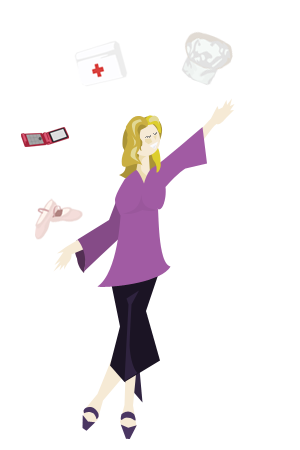Considering the fact that I’ve been writing no less than 3 books, and officially added “Write a book” to my 40×40 list, this was another must attend session. Alli sure knows what she’s doing! I am live blogging the events so you’re reading completely unedited notes as we go through the panel. Sometimes I miss things, sometimes I commentate but mostly I just jot down what I can along the way.
Speakers:
Sharyn Rosenblum from Harper Collins, @sharynrosenblum
Kristen Welch, @weareTHATfamily
Alicia Ybarbo, author of Today’s Moms: Essentials for Surviving Baby’s First Year, @todaysmoms
Tsh Oxenrider, author of , @simplemom
Erin Chase, author of The $5 Dinner Mom Cookbook, @5dollardinners
Sharyn: Decide what it is you want to write about, and the supporting materials (photos, etc). Is it book worthy? Publishers are looking for people who are strong writers and have good interaction with their readership.
Once you have your concept, how do you go about developing it and putting together proposal?
Kristen: The proposal was very intimidating. Non-Fiction Book Proposals are, on average, 10-20 pages. She highly recommends Jeff Herman’s Guide to Book Publishers, Editors, and Literary Agents. (specifically the chapter titled Knock-Out Non-Fiction Book Proposals)
Alicia: There are elements you need in a proposal: a pitch letter (1 sheet about yourself & your idea), market comparison (similar books & what makes yours better), author bios, Table of Contents (will take the longest to do since you’re outlining the book without having written it), sample chapter—add photos, include graphics, make it aesthetically pleasing. Make it professional, but interesting enough to get read by an agent or publisher.
Tsh: Used an outline/template to write her proposal, but tried to find ways to make hers personal. Looked at books that would be sitting next to hers on the bookshelf and included information about how hers would be different.
Erin: Read Nonfiction Book Proposals Anybody can Write—and did it.
Alicia: Your first draft is also not going to be your last.
Sharyn: It’s a case by case basis. There isn’t one way to do it but there is one way that’s write for you. Presentation is crucial. Swag is also good—if it’s a cookbook or art related, send a sample along with it. Your blog following is important but the book has to be able to stand on its own. Don’t oversell yourself, but don’t sell yourself short. You should have a reason why your book is a great idea. The editors want to work with people who really want to develop the best book they can.
About the process:
Tsh: Editor asked to see 2 chapters per month. It wasn’t in the contract but it helped to keep on track and stay in touch throughout the process. One of the reasons my editor picked my book is that I already have an eBook on my blog so they knew I was familiar with the writing process.
Kristen: “I really thought once I landed an agent that I was going to be a millionaire, but that is just not happening.” You don’t need an agent. They are a great go between but you can do it on your own.
Alicia: Don’t think you need to go to a big box firm. Meet with smaller, boutique literary agents. Go with your gut & choose a person who will ultimately be the one to take care of you.
Erin: “I really had no clue. I got the proposal thing figured out because there was a book.” Wrote all of hers in 2 months, but had most of the content (recipes) already on her blog.
Sharyn: Ask about the editorial process & schedule in advance. You’ll know what to expect & have the chance to choose someone who will be attentive. Know the kind of book you have & where you want it to land. If you compare yourself to someone or has a similar audience as another book, go to a similar publisher.
Tsh: Found her agent by asking another online friend with a similar published book and asked who she used.
Kristen: Knowing what you want to write is important. Hone in on what you want to write about. Editor told her only 50% of her book could come from her blog. You can’t just make your blog into a book, but you can’t hold back from your blog either. They want you to continue being active on your blog.
Tsh: The blog writing process is different than the book writing process. You can still take your blog posts, but expand on them.
What happens when the book comes out? Do you have to do a lot of publicity or tours to promote it?
Sharyn: Publishers put great efforts into getting into social media but book publicity is still very traditional. We use traditional media—television, radio, print.
Alicia: The publicist can only do so much. You’ll have to do a lot of hustle — connections. Take advantage of your own communities—local media, etc.
Erin: In the middle of publicity for her new book. There is a lot of work involved—interviews, book signings, etc. She actually asked to do the book signings just in locations she would be traveling already. Book reviews, giveaways have been huge since her book came from her blog.
The rest of the session was Q&A. I don’t do great at catching those, and I’m really freaking hungry. Also? My laptop needs to be charged so I’m all done here. If I catch something interesting along the way, I may come back & add it later. Sometimes, I also tweet random quotes.






